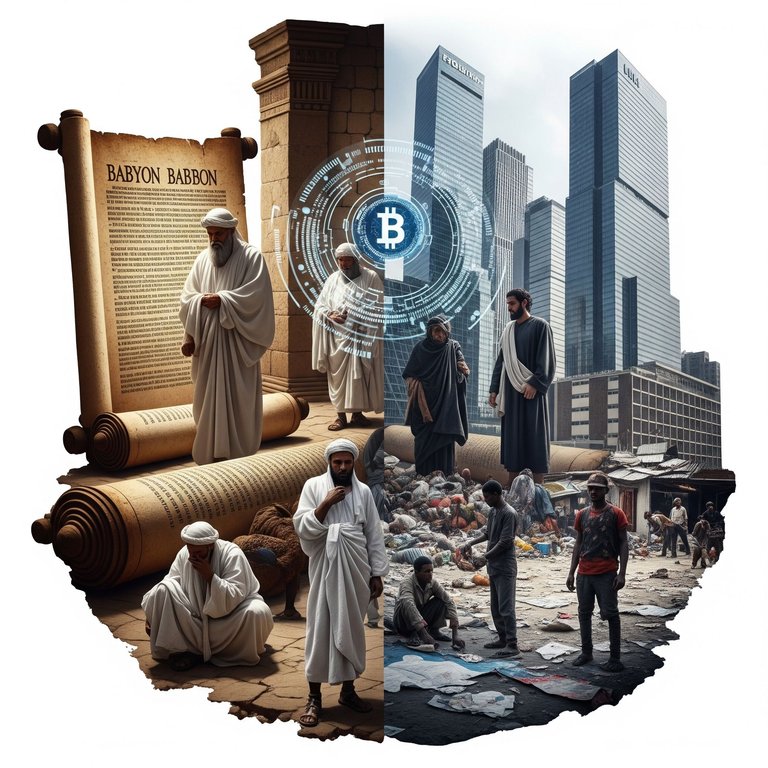Psalm 14 in a Broken World
The fool says in his heart, 'There is no God' (Psalm 14:1).
The above Psalm had been attributed to King David. Whether it is true or not, or if it was part of a compilation after the Babylonian exile, we can still say that the text was ancient. If we attribute it to David, that would be around the 11th and 10th centuries BC, and the 5th century BC if written after the Babylonian exile. We are 3,100 to 2,500 years away from them.

Two Worldviews
Faith in the existence of God is considered basic in ancient wisdom, such as the book of Psalms. To deny it is considered foolishness.
Unfortunately, in modern times, the mainstream cultural consensus is reversed. These days, those who deny the existence of God are considered intelligent, and only the foolish, the primitive, and the underdeveloped men and women still cling to God's existence.
How can we account for such a difference in value judgment? These are two opposing ideas. You cannot simply dismiss the question by saying that the ancient claim is moral, whereas the modern is intellectual. This is because an intellectual judgment is also a moral judgment.
The only resolution is to accept the existence of two worldviews with two different moral standards. This reminds me of Herman Bavinck's supranatural and empirico-scientific worldviews. The latter is naturalistic in its perspective, whereas the former accepts reality beyond the realm of nature. The Judeo-Christian perspective is a subset of the former worldview.
The Lord looks down from heaven on the sons of men to see if there are any who understand, any who seek God (Psalm 14:2).
Understanding is equated with the act of seeking God. Such an act won't be considered by a fool who does not believe in God's existence. Such a man lacks understanding.
Man Under the State of Sin
Around 57-58 AD, the Apostle Paul "paraphrased" the above psalm and made it more direct, saying that no one understands and no one seeks God, and afterwards quoted Psalm 14:3 in full (Romans 3:11-12). Systematic theologians agree that such a description applies the verse to the moral condition of man under the state of sin. Man can be liberated from it only by grace.
You evildoers frustrate the plans of the poor (Psalm 14:6).
The identity of evildoers in the text is obvious from the context. These are the practical atheists who are morally corrupt. Applying it to a modern situation, I find this problematic because there are atheists these days who excel in philanthropy more than those who claim to believe in God. On the other hand, those who claim to believe in God become socially passive and neglect their responsibility to society. Some would even argue that faith in God's existence accounts for so many crimes against humanity. A typical example cited to prove this argument is religiously motivated violence.
How should a theist respond to such an argument? I think Gary North's response is insightful. Even though he doesn't deny that religious wars kill people and are deplorable, the 20th century shows us that far bigger crimes have been committed by atheistic states.
The real problem is not religion itself, but human depravity and the quest for absolute political power. This is the nature of man under the state of sin. This can manifest with or without faith in the existence of God.
The Plans of the Poor
Reading verse 6, the phrase "the plans of the poor" intrigues me. It made me ask the question about the specifics of these plans in the Old Testament that provided the backdrop to Psalm 14.
Gemini gave us at least three examples—survival, earning a living, and seeking justice. I wonder why the idea of financial freedom isn't included. As for me, basic to any plan to liberate oneself from poverty is to attain financial freedom. I don't think that this idea of freedom is modern. Reading the book The Richest Man in Babylon, we see that such a concept of freedom is ancient.
How does the wicked frustrate the plans of the poor? Again, Gemini's explanation is insightful. This includes unjust land seizures, charging exorbitant interest, and bribery in courts.
In today's context, what are the plans of the poor? If you now realize that "lawful plunder" could not be successfully implemented apart from the monetary system of the world, moving or building your digital assets, such as cryptocurrency, is a way to liberate your family from poverty. I see that people behind any financial institution or legal structure that aims to frustrate this goal are on the side of "evildoers." Their goal is to perpetuate the system that prevents people from escaping poverty. They will use intimidation, legal threats, and all kinds of lies and accusations to demonize those who want to break the oppressive structure.
Fortunes of God's People
When the Lord restores the fortunes of his people (Psalm 14:7).
The last word in this Psalm that caught my attention is "fortunes." What is the meaning of "fortunes" in this verse?
I like that word "reversal." I see this in Joseph's life when, after prolonged suffering, he experienced the visitation of God by reversing his situation from being a prisoner in the dungeon to a prominent position in the palace of a very powerful country during his time.
In Israel's case, such a reversal would mean a return from Babylonian captivity to the Promised Land and from suffering and hardship to freedom, peace, and prosperity. That would mean a restoration of God's favor.
Grace and peace!
Posted Using INLEO

https://x.com/lee19389/status/1943062865776382091
#hive #posh
https://x.com/jewellery_all/status/1942526031665193064
#hive